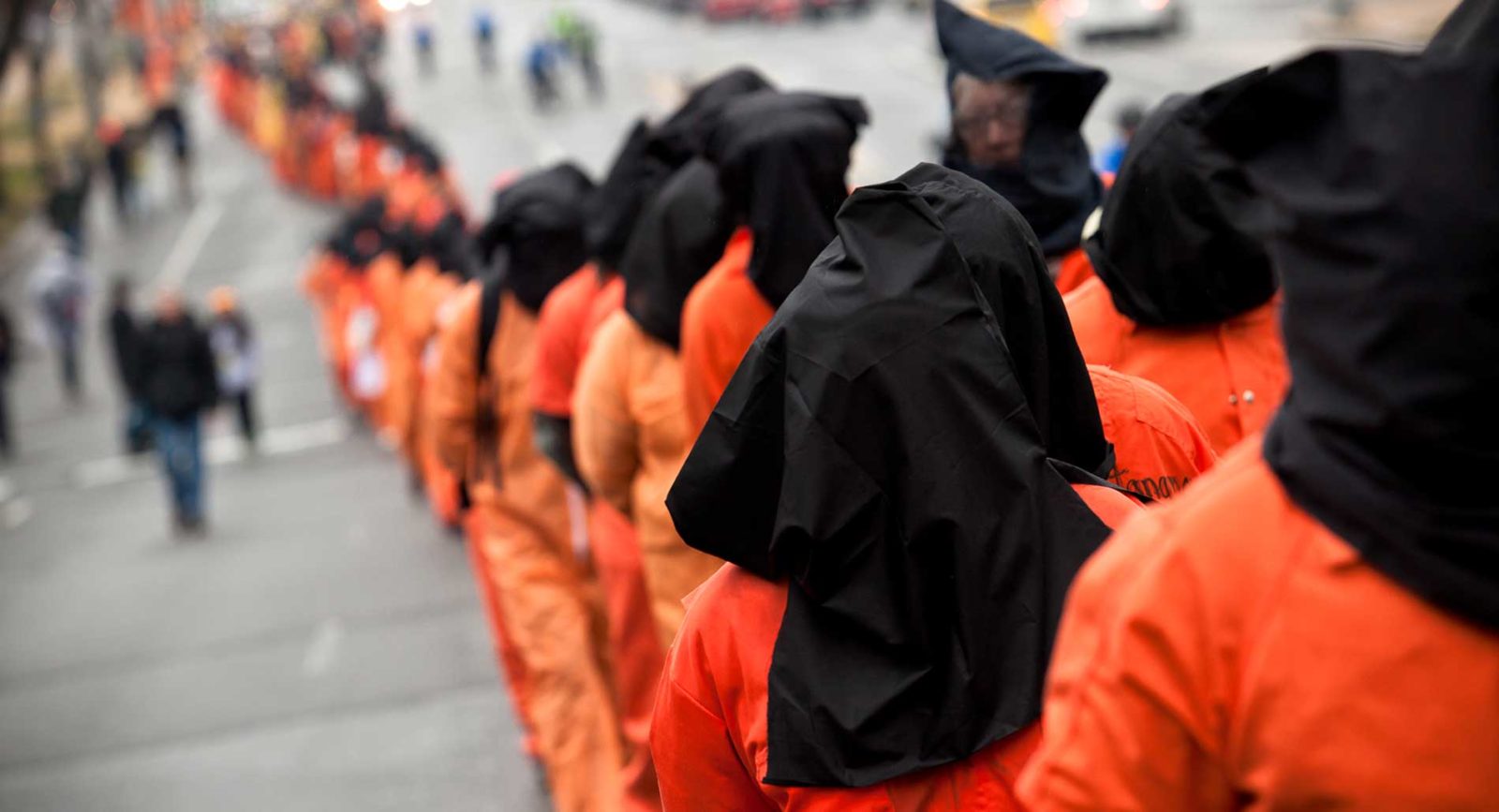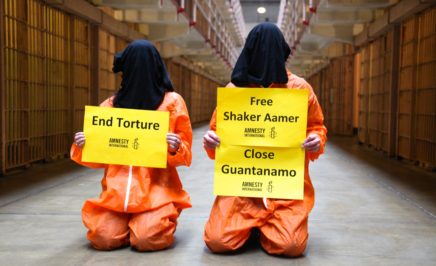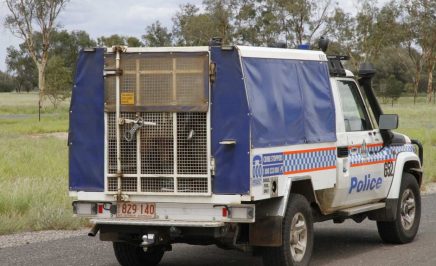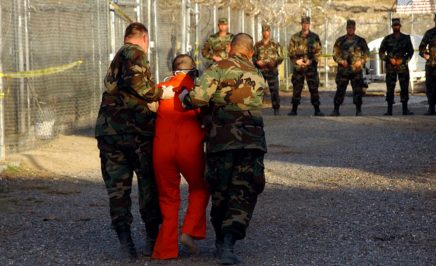January 11, 2017 marks 15 years since detainees were first transported to Guantánamo Bay detention centre – the symbol of torture and indefinite detention without charge or trial. We’re calling on Obama to close its doors for good.
Throughout these 15 years, the USA has proclaimed itself to be a global human rights champion – even as it resorted to torture and enforced disappearance at Guantánamo and elsewhere.
The Guantánamo naval base is about to get a new Commander-in-Chief, President-elect Trump. Trump indicated before the election that he would keep the detention facility there open and “load it up with some bad dudes”.
At the beginning of his presidency, President Obama signed an executive order committing his administration to ending the detentions by 22 January 2010 at the latest. President Obama leaves office on 20 January. This is his chance to leave a human rights legacy. Call on Obama to close Guantanamo now.
What is Guantánamo?
In the wake of terrorist attacks in the USA on 11 September 2001, President George Bush declared a ‘war on terror’. He argued that the need to counter terrorism and keep people safe overrode the obligation to respect human rights.
Guantánamo Bay was established by the United States in January 2002 as a place for the U.S. authorities to hold people perceived to be ‘enemy combatants’ in this war on terror. The first detainees were transferred to the prison camp, on 11 January 2002.
“Myself, my son Mohammed and my wife Asma thank all Amnesty International members for supporting me and for supporting human rights… I will never forget their help”
Sami al-Hajj, a cameraman with Al Jazeera television, detained at Guantánamo for six years
Guantánamo is based in Cuba, as the US government sought to hold detainees in a place neither US nor international law applied. The facilities at Guantánamo have become emblematic of the gross human rights abuses perpetrated by the U.S. government in the name of terrorism.
Shaker Aamer was one of the first detainees to arrive at Guantánamo Bay in 2002. He was detained in Afghanistan in November 2001 where, according to his account, he was working for a Saudi charity.
After 13 years in Guantánamo without charge or trial, Shaker Aamer was finally released and returned to his family in the UK in October 2015. He had been cleared for transfer in 2007.
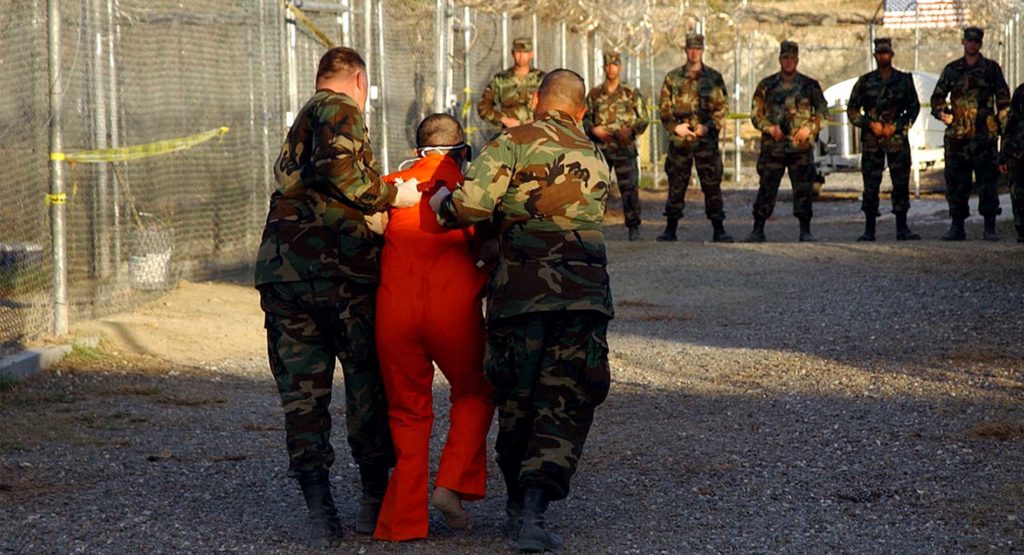
In 2008, Sami al Hajj, a Sudanese cameraman for al-Jazeera, was released from Guantánamo. He was held by the U.S. government without charge for over six years. Sami al Hajj has said that while in custody he was subjected to a range of torture and ill-treatment, including beatings and denial of prescribed medication for cancer.
Amnesty International activists worldwide wrote letters to U.S. authorities on behalf of Sami al Hajj. “Myself, my son Mohammed and my wife Asma thank all Amnesty International members for supporting me and for supporting human rights… I will never forget their help,” said Sami al-Hajj.
In 2017 there are 55 people still held at Guantánamo – 45 of them detained without charge or trial. The 10 others have faced or are facing military commission proceedings that do not meet international fair trial standards. Six are currently facing the possibility of the death penalty after such unlawful trials.
The tale of David Hicks
Adelaide-born David Hicks was captured in 2001 by U.S. forces in Afghanistan, where he had joined an Al-Qaeda training camp. He was illegally detained without fair trial in Guantánamo Bay for over five years.
During this time, Hicks claims he suffered torture and other cruel and degrading treatment at the hands of U.S. officials, consistent with the allegations of many others either detained or connected with the facility.
Hicks was convicted in 2007, after pleading guilty to material support for terrorism. He was transferred to Australia to serve nine months of a seven-year sentence. In 2015, the Court of Military Commission Review overturned his conviction. He later penned his memoir: Guantanamo: My Journey, detailing the abuses he received in the detention centre.
What we’re doing
Since the first person was transferred to Guantánamo Bay, we have been campaigning for all detainees be charged with a recognisable criminal offence and given a fair trial – or immediately released.
Through our campaigning, we were able to bring David Hicks home. Now, Amnesty continues to call on President Obama, in the short time left before he leaves office, to meet the promise he made to end the detentions at Guantánamo Bay forever.
